In January, some Airbnb hosts more than tripled nightly rates as evacuees from the Eaton and Palisades fires scrambled to find temporary housing, according to a data analysis run by Better Neighbors LA, a coalition of housing activists and labor groups that monitor short-term rental enforcement. (One of those groups, the union Unite Here Local 11, is a financial supporter of Capital & Main.) The organization says it has documented more than 3,200 cases of illegal price gouging in L.A. County’s short-term rental market.
On Jan. 7, after California Gov. Gavin Newsom declared a state of emergency in Los Angeles County, rent hikes of more than 10% were prohibited by the state’s price gouging law. Since then, California Attorney General Rob Bonta announced criminal charges against two real estate agents accused of attempting to raise rents beyond the legal limits.
On Feb. 4, L.A. City Attorney Hydee Feldstein-Soto announced she has filed suit against Blueground US, Inc. for price gouging. The company offers fully-furnished rentals on flexible terms, usually for less than a year. Feldstein Soto’s complaint says Blueground, which also lists homes on Zillow and Airbnb, raised some rents more than 50% after the fires. It is the first price gouging case against a company in the mid-term rental market to arise from the recent fires.
Now, in a letter to the Los Angeles City Council, Better Neighbors LA is also calling for legal action against price gougers in the short-term rental markets, including those overseen by companies such as Airbnb, Vrbo and Booking.com.
“It’s classic disaster profiteering, and it’s morally wrong,” said Noah Suarez-Sikes, an organizer with Better Neighbors LA.
An Airbnb spokesperson said in an email that the company’s analysis of Better Neighbors’ report shows it is inaccurate. However, Airbnb did not respond to Capital & Main’s request that it provide pricing data to refute the inaccuracies.
Better Neighbors obtained its data from Inside Airbnb, an activist group whose mission is “to provide data that quantifies the impact of short-term rentals on housing and residential communities.” Inside Airbnb compiles information that is publicly available on the Airbnb website, then verifies and analyzes it.
Airbnb hosts price their own properties, but Airbnb offers them “Smart Pricing,” an online tool that automatically suggests rates based on demand. However, the company says since the emergency declaration such demand pricing is not allowed.
The Airbnb spokesperson claimed that the company is working to help hosts comply with the law.
“We are actively sending communications to hosts to remind them of the rules, and those who attempt to raise prices by more than 10% from their pre-emergency pricing structure receive an error message. Where necessary, Airbnb has also rolled back listing prices to pre-emergency pricing to help our hosts stay compliant.”
However, a host who goes by the name Andy on Airbnb told Capital & Main that he set rates on the platform without any issues. Andy, who is designated an Airbnb “Superhost,” lists five Pasadena properties on the platform. Better Neighbors LA data reviewed by Capital & Main found that one of them, an “entire guest suite” with three bedrooms was on offer for $100 per night on Jan. 4. By Jan. 17, the nightly rent was $149, 49% higher than the pre-fire price. Andy said he relied on Airbnb to set rates.
“I always [use] smart price from Airbnb,” he wrote in an Airbnb message to Capital & Main.
In letters to L.A.’s City Council and the Los Angeles County Board of Supervisors, Better Neighbors LA said it compared pre- and post-fire Airbnb rates. It reported that in the city of L.A., hosts raised rates by more than the 10% legal maximum on more than 1,450 listings after the blazes erupted, while more than 1,750 listings spiked in unincorporated Los Angeles County and surrounding cities.
Asked to comment on Better Neighbors’ request to crack down on price gouging in the short-term rental market, City Councilmember Hugo Soto-Martinez said in a statement that “price-gouging in the middle of an emergency isn’t just immoral—it’s illegal.”
As fires scorched L.A., many burned-out Angelenos looked to short-term rentals as a stop-gap measure while they looked for new housing.
Soto-Martinez said he’s “committed to holding bad actors accountable. If these platforms won’t step up to stop the abuse, then the city must.”
Better Neighbors flagged a two-story condo on a commercial strip near Universal Studios that it said rented for $129 per night on Jan. 4, then rose 30% to $169 by Jan. 17. Capital & Main checked prices and found they were up again to $369 for the night of Feb. 5, according to Airbnb. Airbnb appears not to have acted to stop the price fluctuations.
But Thomas Bekker, who manages the property, said the price increase “has nothing to do with the fires,” arguing that the increases don’t amount to price gouging. “We gave a lot of discounts,” during the disaster, he said.
Instead, Bekker, a co-owner of Apollo Property Management, said that, similar to hotels and airlines, short-term rentals have historically set prices based on demand. He added that Airbnb would not allow significant price increases of a property’s “base rate,” which is not visible to the public. He claimed that short-term rental gouging “would be crushed in the algorithms,” or that overpriced listings would be less visible in search results.
The Better Neighbors’ reports of Airbnb price gouging come as the company has positioned itself as a major player in wildfire relief efforts through Airbnb.org, a charity it founded. Although Airbnb.org has been publicly criticized for failing to deliver promised aid to some, its website says that it has offered free emergency housing to 32,000 evacuees and first responders through its partnership with the nonprofit 211 LA.
Capital & Main requested comment from the company on specific listings such as Andy’s and others whose rates, according to Better Neighbors LA data, rose precipitously from pre-fire levels, but the company has not responded.
Better Neighbors LA’s request to the City Council to rein in alleged price gouging has been made at a time when the city has struggled to police an already unruly short-term rental market. Last December, the L.A. Housing Department estimated that about 60% of the city’s short-term rentals in multiunit buildings were, for a variety of reasons, illegal, according to a memo sent by the Housing Department’s then-interim general manager, Tricia Keane, to the City Council.
Copyright 2025 Capital & Main

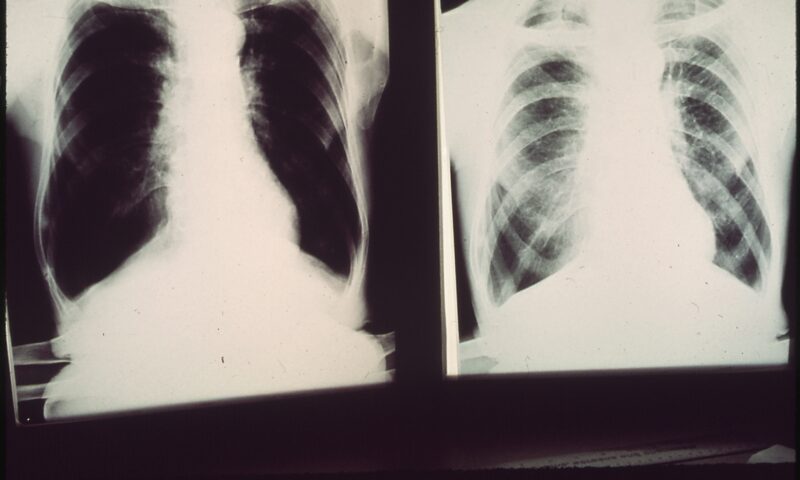
 Latest NewsJune 17, 2025
Latest NewsJune 17, 2025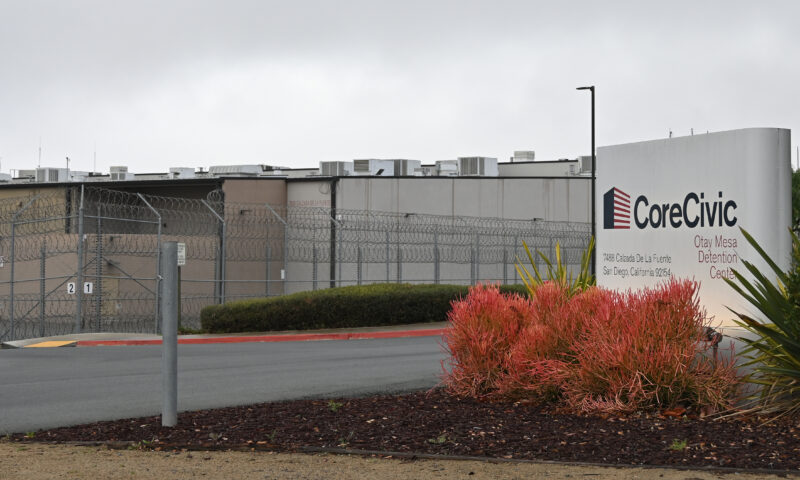
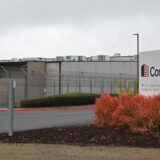 Beyond the BorderJune 10, 2025
Beyond the BorderJune 10, 2025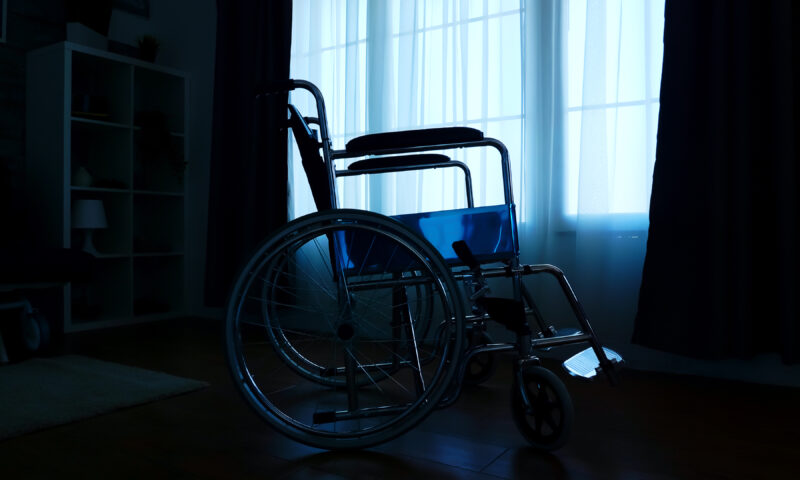
 Column - State of InequalityJune 5, 2025
Column - State of InequalityJune 5, 2025
 Column - State of InequalityJune 12, 2025
Column - State of InequalityJune 12, 2025
 Column - California UncoveredJune 18, 2025
Column - California UncoveredJune 18, 2025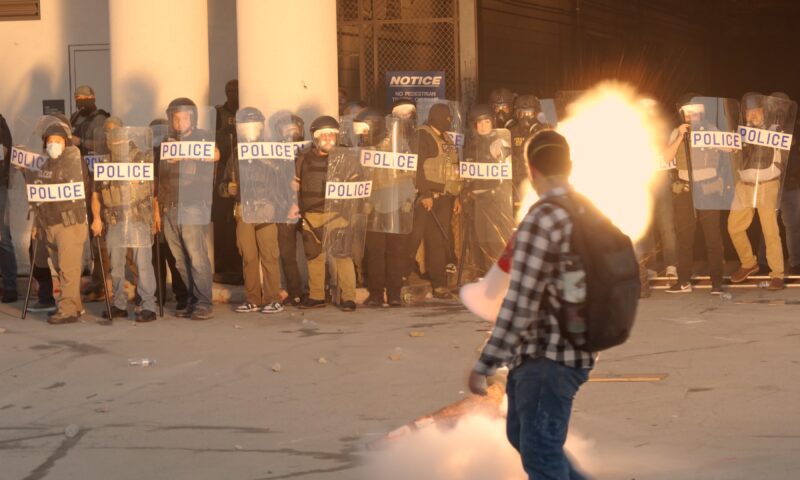
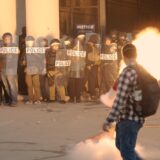 Featured VideoJune 10, 2025
Featured VideoJune 10, 2025
 Latest NewsJune 4, 2025
Latest NewsJune 4, 2025
 Striking BackJune 3, 2025
Striking BackJune 3, 2025

